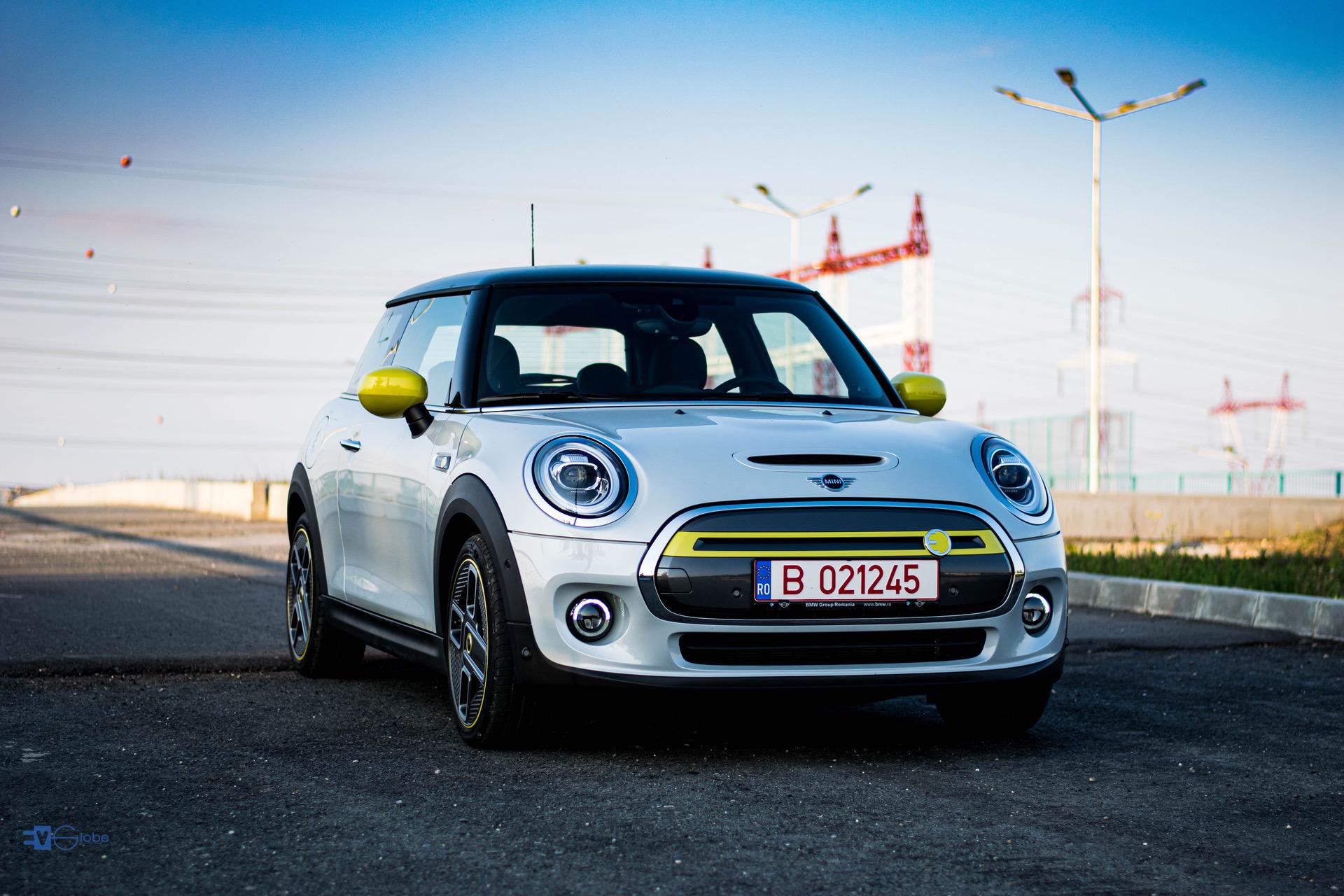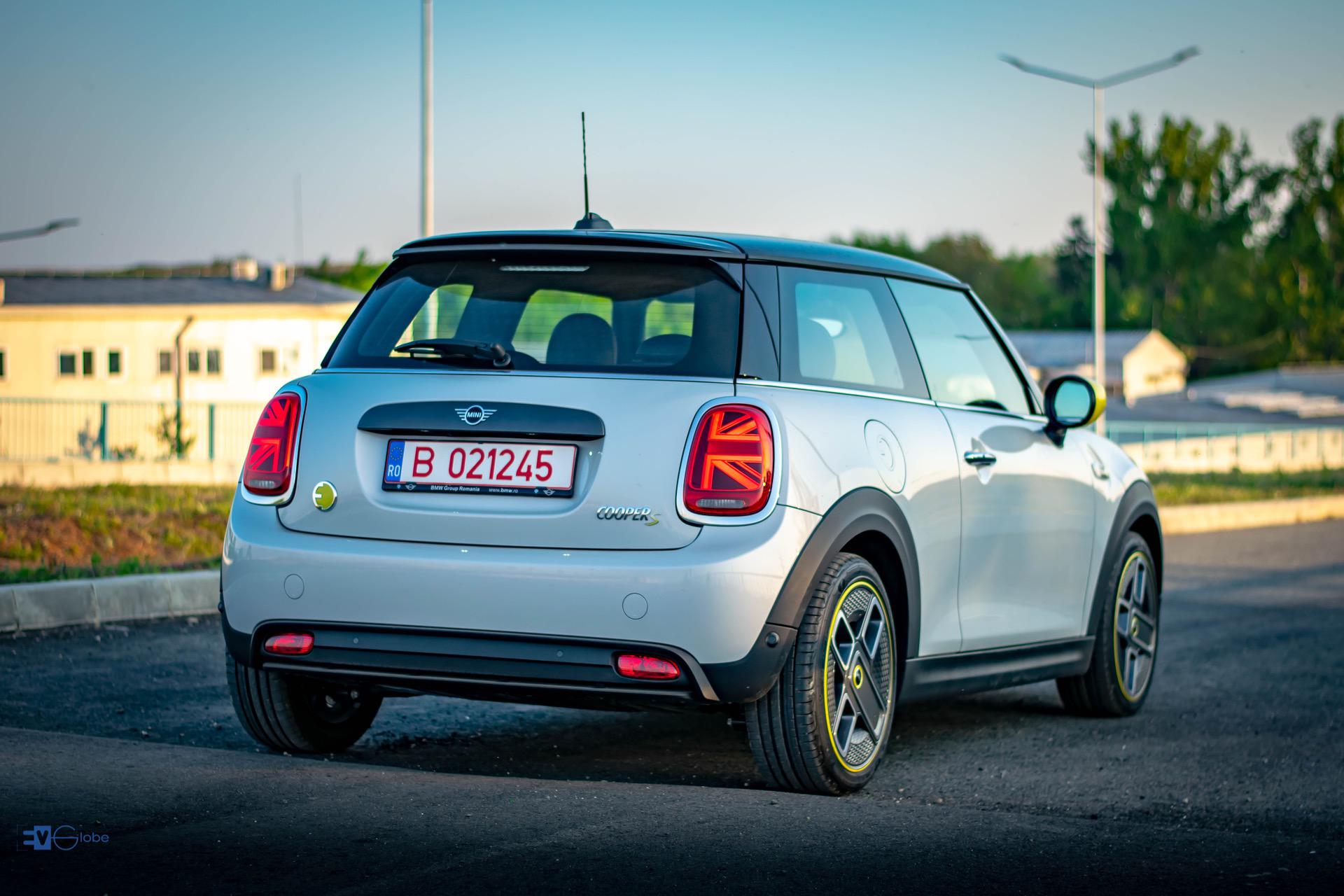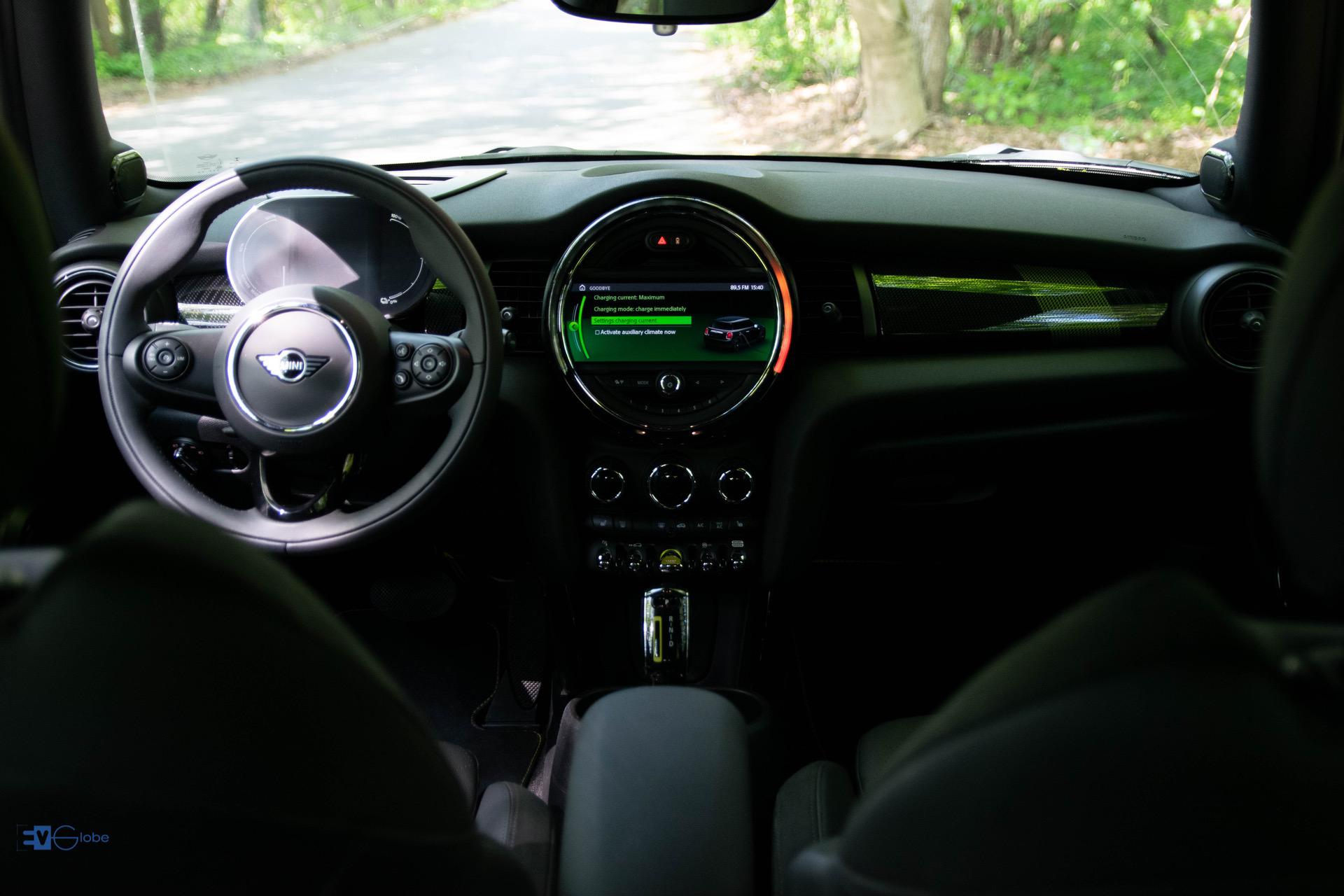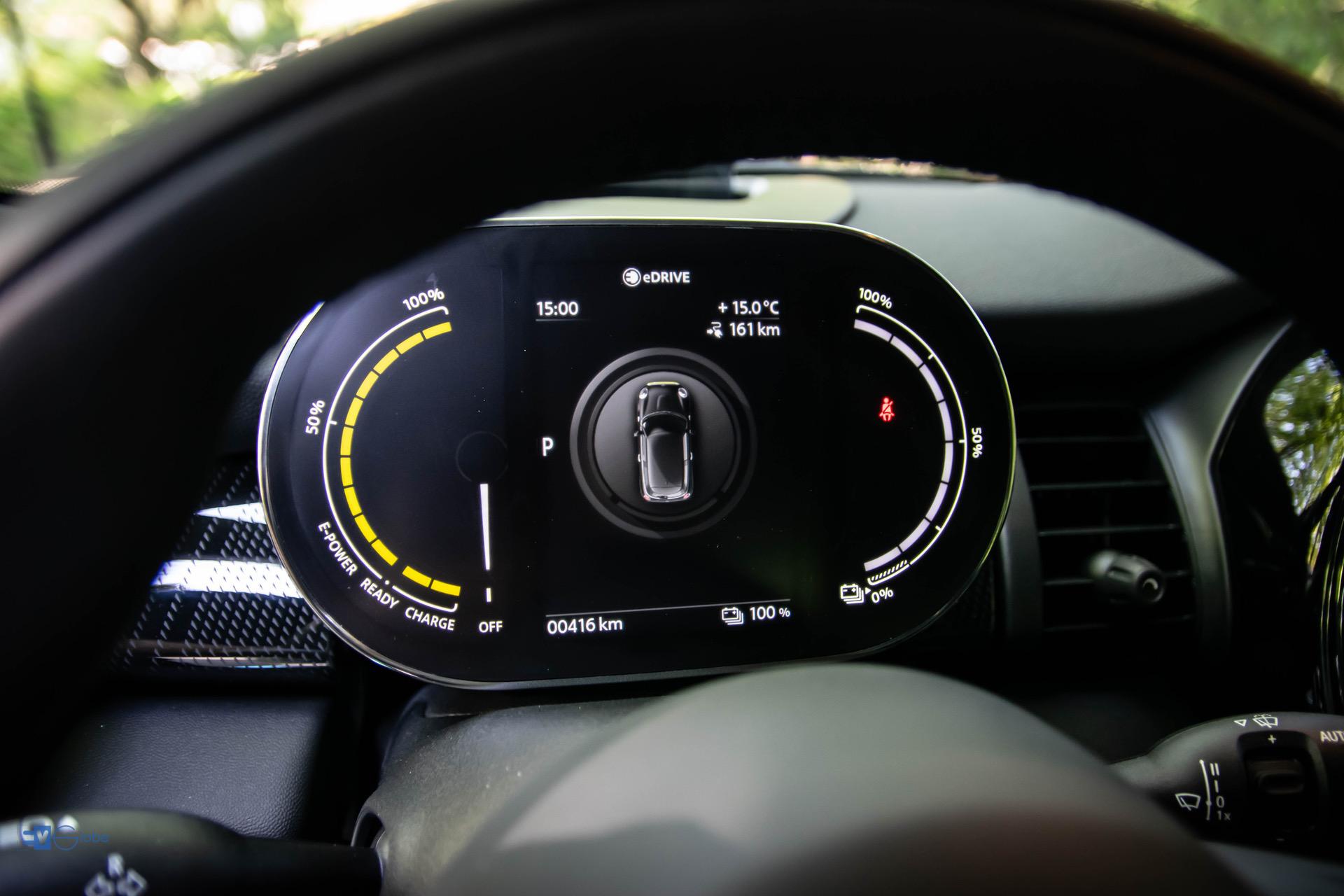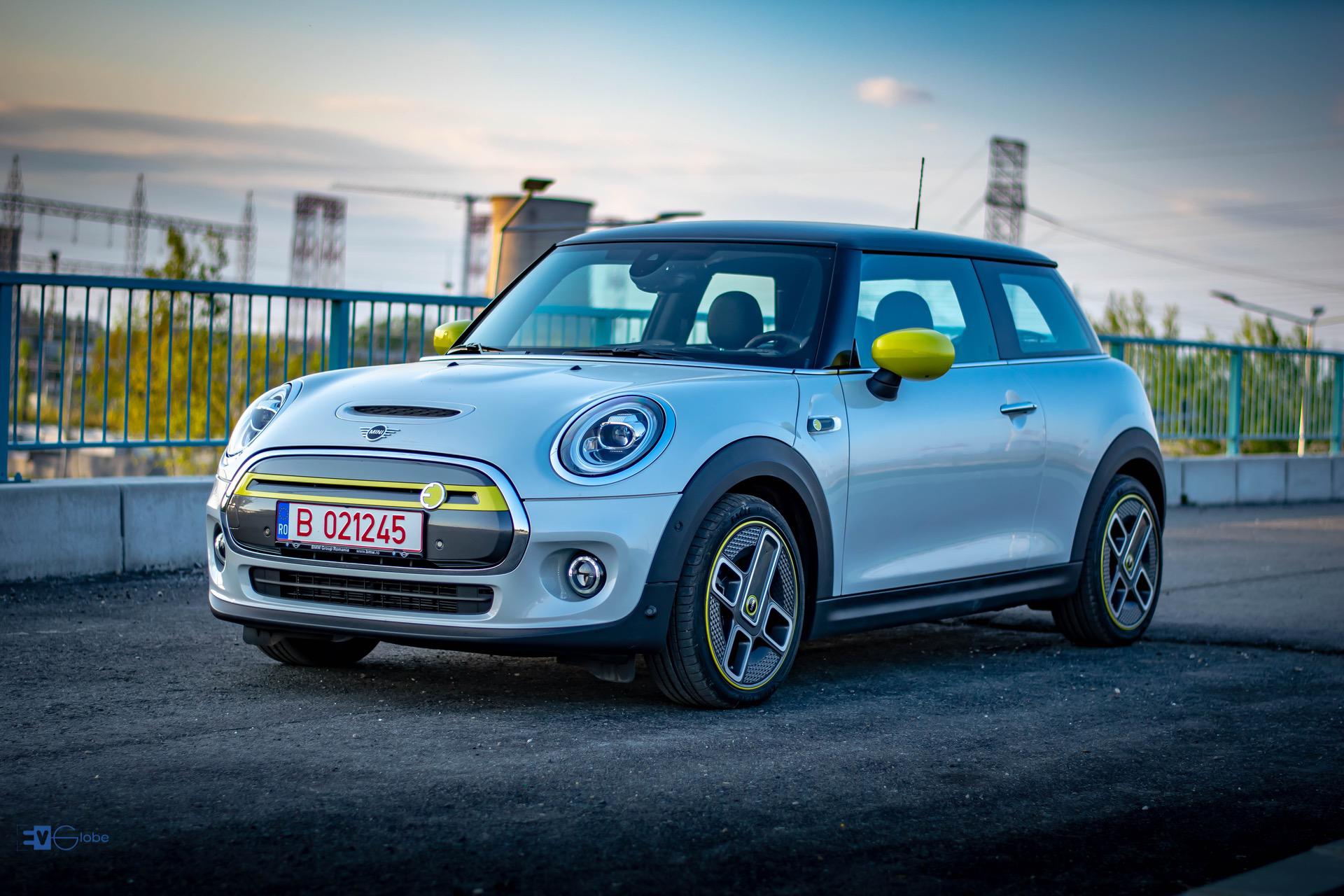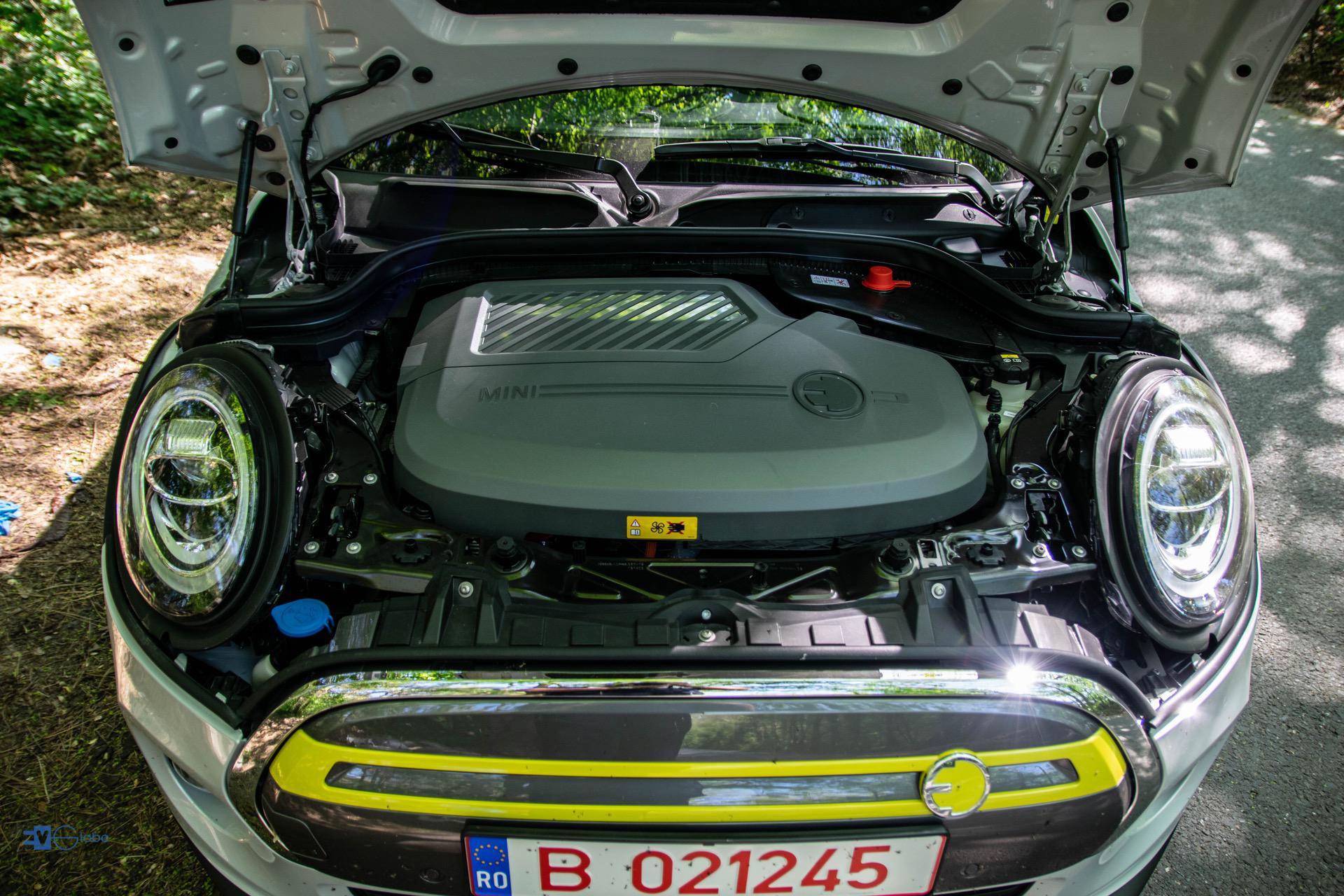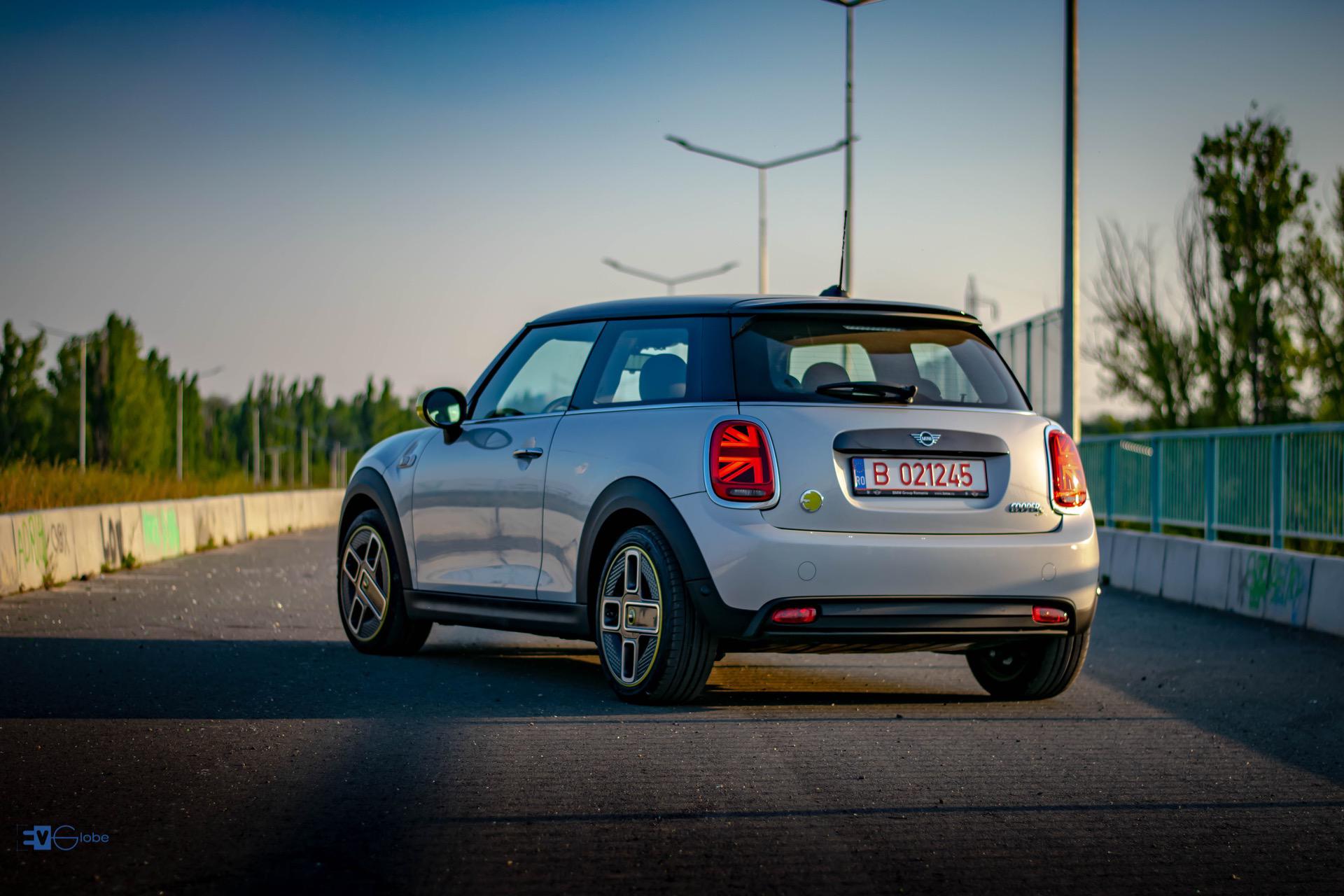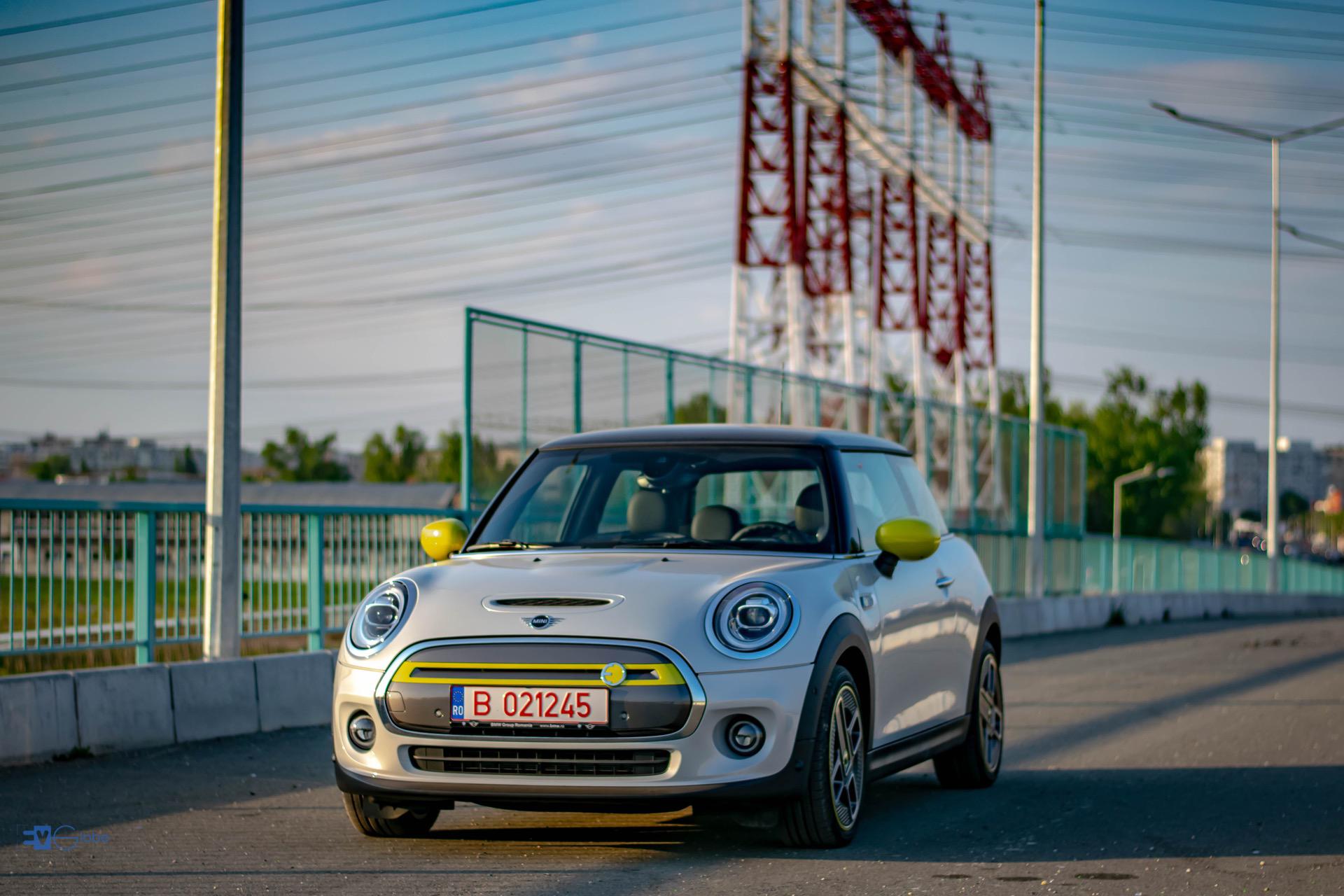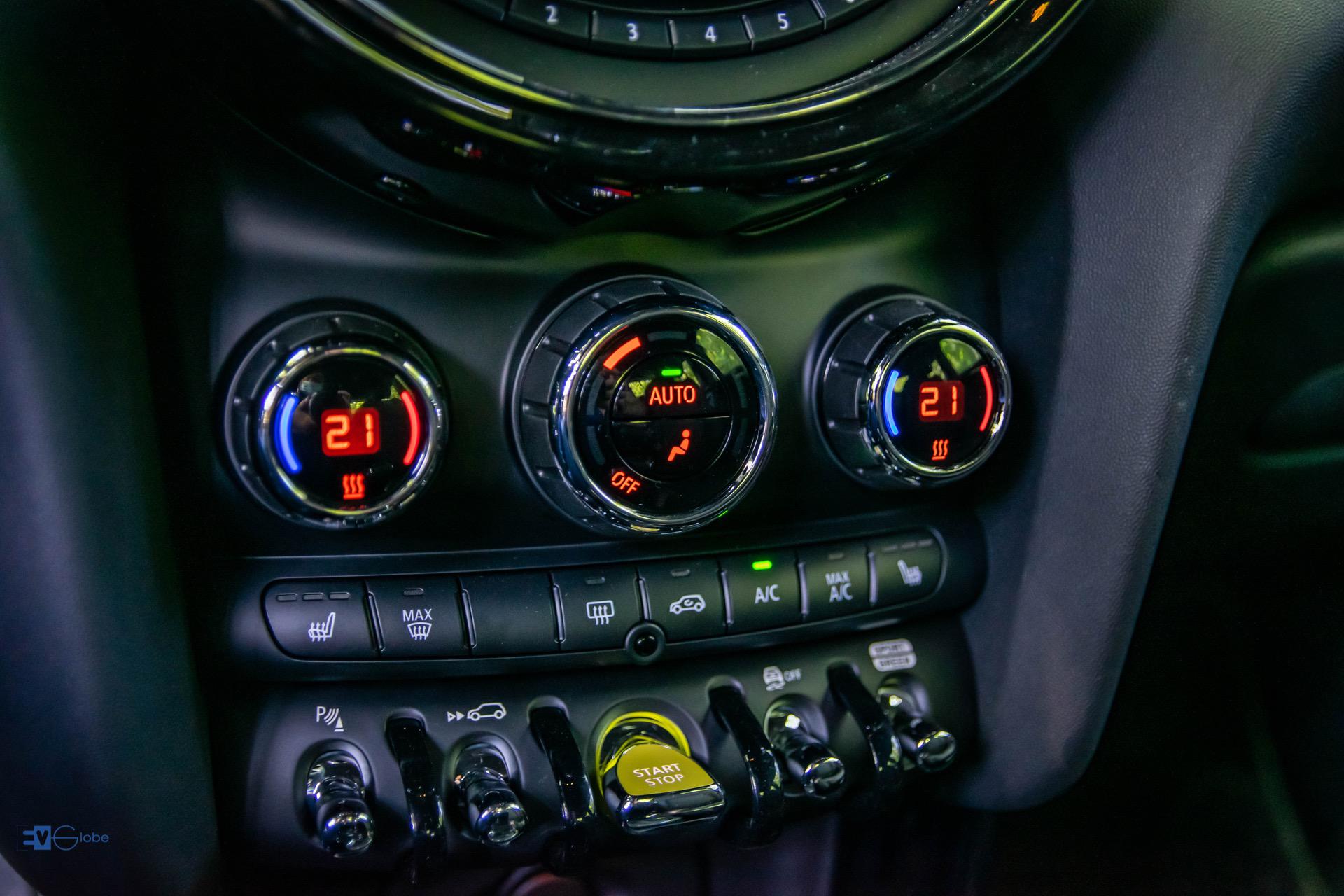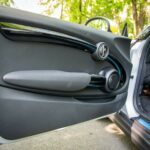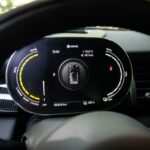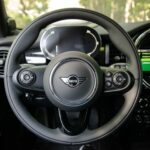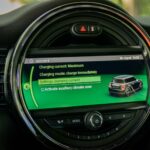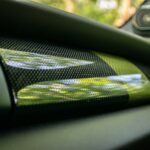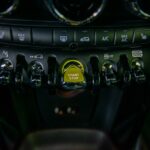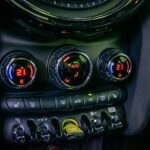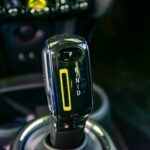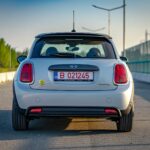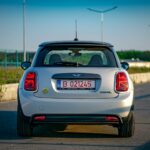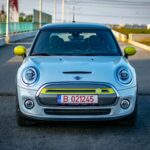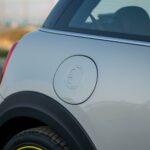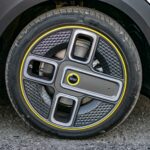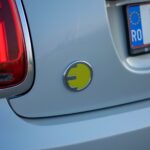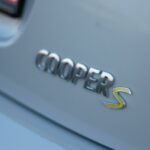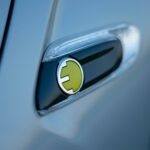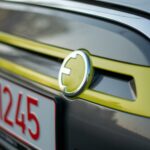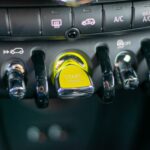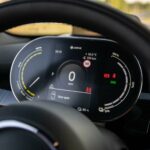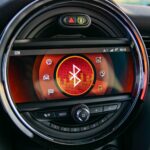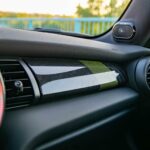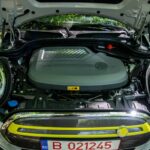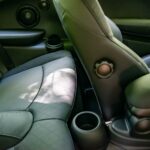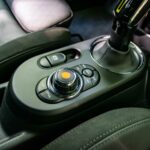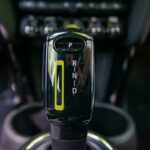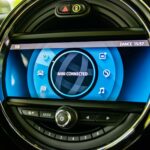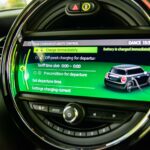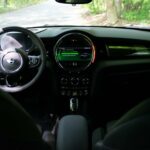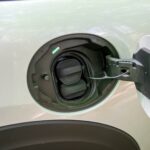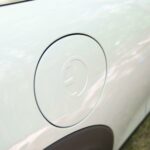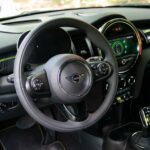When the MINI Cooper SE was initially announced, the world let out a rather clear and audible ‘FINALLY’. This car was in the making for about 10 years now, ever since the MINI E took shape. That was a testing product, one meant to literally measure just how much a random person drives every day. This time though, we’re looking at a real-deal electric MINI, one that you can actually buy.
The History Of Electric MINIs
MINI has been mulling over this idea for quite some time, not just with the MINI E. There have been other hints before of an electric car, such as the MINI Rocketman project, a small city car meant to offer the basics of transportation to its owner.
There was also the MINI Superleggera concept which was electric and a beautiful car too. However, one only needs to look back at how the MINI took shape in the first place to realize, this was a rather logical move.
The original Mini was a city car by definition. It was small, robust and easy to live with. Maintenance was dirt cheap and buying one didn’t require draining one’s bank account. Some of those same characteristics can be found on the new model.
Design Blends In With Other MINIs
It’s still a very small car, it’s dirt cheap to run, thanks to its electric powertrain and, in some markets, it’s the cheapest electric car you can get in the premium compact segment. But is it worth that kind of money in the first place?
Well, looking at the electric MINI from the outside, you might start wondering. That’s because not a whole lot is changed compared to the regular flavor Cooper S. The Cooper SE comes with a slightly modified front end, with a blocked-out grille, dominated by an interesting color scheme.
The details you see on our test car were done in yellow paint, a way to differentiate the car from the rest of the line-up. The choice of color wasn’t random, as it is meant to emphasize the electric element hiding beneath the surface.
Therefore, those accents on the front grille, side mirror covers and wheels are dead giveaways. Take them away and there’s nothing telling you this is not a “normal” MINI. And that’s something that people were actually looking forward to.
I, for one, would definitely go for a different color theme and would skip the wheels that have an off-balance design that tickles my OCD the wrong way. There is one element though that tells you this is a car driven by electrons and that is the “fuel cap” which bears an eDrive logo on it.
Typical MINI Interior Design
Step inside and the same familiar theme continues. Not a lot is changed, but the one item you’ll immediately notice is the new instrument cluster. It’s a new, digital setup that was also introduced on the MINI JCW GP model and will probably make its way on other cars as well. Unlike the old setup which used analogue dials and limited any other information to the bare minimum, this one offers more data.
It’a peculiar piece too. The left side shows you a sort of power indicator. It’s not entirely digital but uses a needle under the glass to make it seem like it is. On the right side, you have a battery charge indicator while the middle section shows you the speed, range and other interesting data about the car.
There are a couple of problems with it though. First of all, it’s fixed on the steering column. That means, not matter how you adjust the steering wheel, you’ll be looking at it at the same angle and the display is so big, you can’t really see it all due tot the wheel getting in the way.
It would’ve been better if the display was attached to the dash, in my view, allowing you to adjust the steering wheel separately. Then there’s the display itself. For some reason, the glass has a peculiar texture to it, making the image a bit blurry. I guess the display had to be matte to avoid reflections but something’s definitely off here. Every time you look at it you feel like your eyes are out of focus.
That’s basically almost the only thing that tells you this is an electric model. The gearshift knob also has a small yellow detail on it while the start button is no longer red but finished in the same color. But that’s about it. The moment you press said button is when you actually realize something’s afoot.
The Electric Driving Experience
That’s because instead of the familiar sound an internal combustion engine makes on a Cooper S, you’re greeted with a specific sound. Next, you go into Drive and a buzzing sound keeps following you everywhere you go, to warn pedestrians that something’s moving around them. Otherwise, you’d be creeping along in utter silence. That sound is automatically turned off over 20 mph though so over that you’ll be cruising along in a quiet atmosphere.
Driving the MINI Cooper SE is quite an experience. That’s because while the instant torque from the electric engine puts an equally instant smile on your face, the acceleration isn’t exactly neck breaking.
And that’s fine with me, to be honest.
Speaking of which, the specs of powertrain are the same as on the BMW i3S, the car with which the Cooper SE is sharing it. The electric motor has 182 HP and 199 lb-ft of torque and that’s plenty of grunt for a car this small. It’s almost identical to what the Cooper S is offering.
However, it is also 145 kilos heavier than the petrol model and that can be felt at times.
The suspension had to be revised to deal with the extra weight and, if the Cooper S seemed a bit stiff on rough roads, the Cooper SE adds about 10 percent more stiffness to the bill. But you really shouldn’t expect a terribly harsh ride though. Yes, it does get bothered over uneven surfaces but it truly isn’t all that bad.
And that suspension does come in handy whenever you want to simply have fun.
That’s what MINIs are all about, right? And you definitely will have fun with this one. The instant torque provides thrills like never before on a MINI. Touch the go-faster pedal and the car reacts instantly. The Sport mode accentuates that rapid response and makes it all the more fun.
And while there is some added weight to the new MINI you might be worried about, you should know that it was positioned in such a way that it doesn’t get in the way.
The battery has a T-shape and is located in the center console and under the rear seats. Therefore, the center of gravity is low and actually sits 30 millimeters lower than in the regular hatch. That despite the fact that the body of the car actually sits 18 millimeters higher. What that means is that cornering is even better in this car than in a Cooper S as everything is closer to the ground.
And indeed, the MINI drives really great, cornering like a go-kart it was supposed to be in the first place. You can chuck it about and have fun with it on city streets without worrying of going too fast.
That doesn’t mean this car is slow but it gives off the impression of driving a lot faster than you really are. You feel like you’re doing 60 mph in a heartbeat but the speedometer shows just 30 mph. And that’s because reaching 30 mph takes just 3.9 seconds and feels like the blink of an eye. 62 mph is shown on the dash after 7.3 seconds.
Handling The Understeer
Another highlight here is the BMW ARB system. You might remember it from the BMW M135i xDrive, for example, and it’s a new way of using Traction Control. It was first developed for the i3S, thanks to BMW’s involvement in Formula E, and basically allows the car’s electronic nannies to respond faster to a loss of traction. Today, this system is standard on all new BMW models. The MINI Cooper SE also has it and it makes a huge difference.
Last week, I drove the Hyundai Kona Electric and I loved it, but it couldn’t hold a candle to this MINI in terms of driving pleasure and handling. Even though it has a bit more power. The main issue was the lack of traction on the front axle whenever you push the acceleration pedal a bit harder.
The instant electric torque of an electric vehicle can easily overwhelm an axle so you do need clever solutions to keep that in check. This is where ARB steps in and it does a great job at offering you plenty of traction without cutting in rudely. The system actually feels like is anticipating traction loss, and acts accordingly, instead of cutting power altogether and you are never truly ending up with a lot of wheelspin.
The brakes are working great too and the MINI Cooper SE comes with one-pedal driving. This means if you take your foot of the acceleration pedal at the right time, you can avoid pressing the brake pedal at all around town. The regeneration braking has two stages which can bring you to a complete stop while turning on the rear brake lights.
Once you get used to it, you’ll be able to anticipate how early you need to take your foot off the acceleration to stop without touching the brake. If you don’t like it, there’s a toggle that allows you to control just how much energy the car recuperates upon slowing down.
Apart from the Normal and Sport modes, you also get Green and Green Plus modes that dial back the power the car’s systems deliver. It can also limit the top speed and AC functions in the more aggressive power saving setting. The on-board computer will show some changes to the estimated range when you choose one of these two driving modes. But at times, you won’t be able to use them because you will actually need AC or to go a bit faster than 90 km/h.
As for the energy consumption, you’ll get a decent range out of a full battery for what this car is meant to be: a city cruiser. During my time with the car I noticed an average energy consumption around town of 14 kWh/100 km covered.
MINI says the battery is capable of storing about 32 kWh of energy in it with about 29 of those being actually usable. That said, you should be able to cover 200 km (124 miles) with one charge around town.
I do have to point out though, that my test was done in a rather empty city due to the Coronavirus lockdown and that the temperature was almost perfect, sitting around the 20 degrees Celsius mark. But it’s fair to say that you’d see worse results in the winter, for example.
Outside the city limit the numbers changed a bit. Driving at an average speed of around 80 km/h (50 mph), I saw an average energy consumption of around 12 kWh/100 km which is actually decent. Especially since this time round I had the AC turned on.
On the highway, at an average speed of 130 km/h (81 mph) the energy consumption was 20 kWh/100 km which means you could cover about 150 km (90 miles) at that kind of speed with one battery.
This goes to show the MINI wasn’t designed to be used outside the comforts of a city or beyond the safety net of nearby charging ports are offering inside urban areas.
As for the charging, you’ll be able to charge this car using anything between a standard household 3.8 kWh plug and a fast-charging 50 kWh CCS station which is also the maximum the car will allow. So, depending on what kind of charger you’re using, the times will vary.
Using the former plug it will take about 8 hours to get it full, while going for a Type 2 charger that can deliver 7.4 kW it will be done in about 4 hours.
If you do go for the CCS 50 kW charger though, the battery will charge from zero to 80 percent in 35 minutes. Considering you rarely reach 0%, if you stop for about 10 minutes at a fast charger you might get enough range for an additional 50 km (30 miles).
Should I Buy One?
So, is this car for you? It depends on what you’re planning on using it for. The MINI Cooper SE is definitely not a car for trips around the world. It was designed for city dwellers and usage in urban areas and for that, it is pretty great.
It is meant to be a fun, second car, that you get to use going to work every day or shopping around town. It’s fun to drive and it is the kind of car people love so much they give them names. It’s a fun little package that will get you your daily dose of adrenaline without breaking the bank or losing your license.
If that sounds like what you’re looking for, don’t hesitate, the MINI Cooper SE is a fun bundle of joy.

